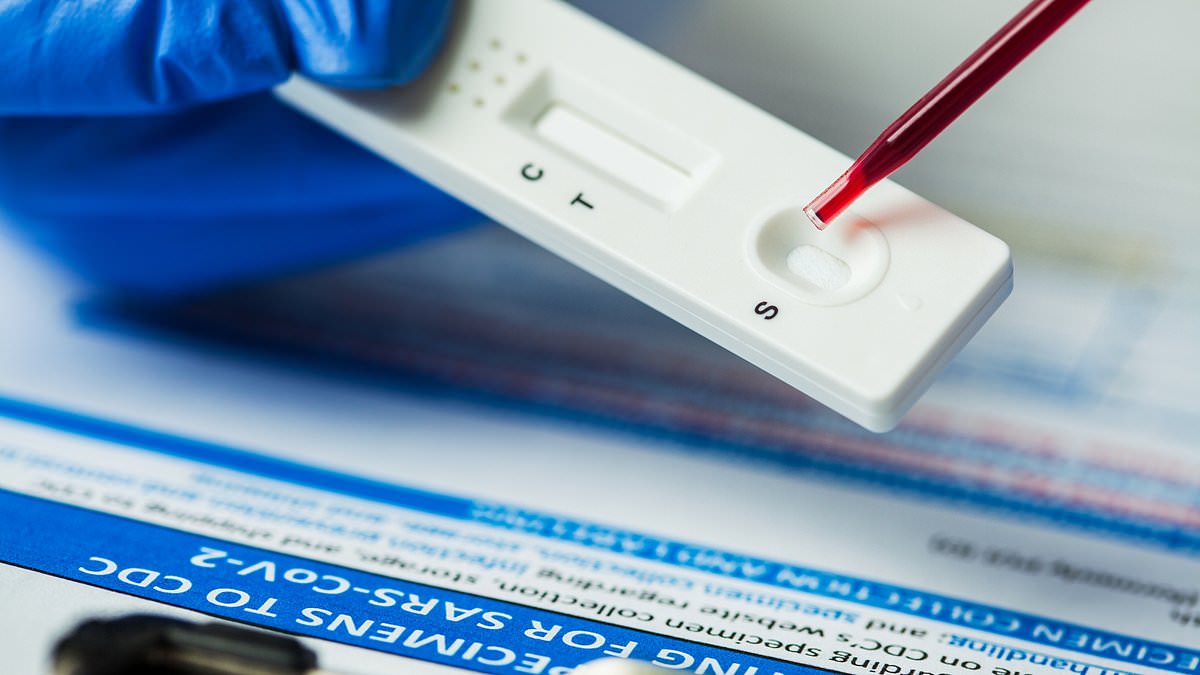A test which uses dried blood samples could diagnose prostate cancer within 15 minutes, research suggests.
Hailed as a ‘breakthrough’ by experts, it works by analysing crystal-like structures in dehydrated blood for signs of the disease.
Early trials found the test is 90 per cent accurate, potentially transforming diagnosis of the most common form of cancer in men.
Researchers analysed 108 samples from healthy volunteers and men with prostate cancer, examining blood protein structures using a technique known as new polarisation-based image reconstruction.
They focused on how these proteins change their 3D shape and join together in the early stages of the disease, conducting a detailed layer-by-layer analysis.

A new test using dried blood samples could detect prostate cancer within just 15 minutes, research has suggested (file photo)

Early trials suggest that the new test, which works by analysing crystal-like structures in dehydrated blood for signs of the disease, is 90 per cent accurate
The whole process takes as little as 15 minutes, according to the findings published in the Scientific Reports journal.
The 90 per cent accuracy rate for early detection is much higher than existing screening methods, with ‘immense potential for revolutionising cancer diagnosis’.
Professor Igor Meglinski, lead author from Aston University’s Institute of Photonic Technologies in Birmingham, said: ‘This breakthrough opens new avenues for cancer diagnosis and monitoring, representing a substantial leap forward in personalised medicine and oncology.
‘Prostate cancer accounts for nearly 10 per cent of cancer deaths in men and is one of the leading causes of death in older men. However, the life expectancy of 90 per cent of patients diagnosed with prostate cancer at stage 1 or 2 is 15 years or more.

Men over 50 have to request a prostate-specific antigen (PSA) test from their GP, leading many cases not to be caught until the disease is advanced (file photo)
‘By enabling earlier and more accurate detection, our blood test has the potential to significantly improve outcomes and survival rates for many patients.’
Men over 50 have to request a prostate-specific antigen (PSA) test from their GP, leading many cases not to be caught until the disease is advanced. When cancer is suspected, patients are sent for biopsies and MRI scans which can confirm the diagnosis.
The findings come after a 135,000-strong petition was delivered to No 10 calling for a national screening programme.
The Mail has long campaigned for better prostate cancer treatment. Health officials have said the current PSA test is not accurate enough and charities have warned of a ‘postcode lottery’ of care.









